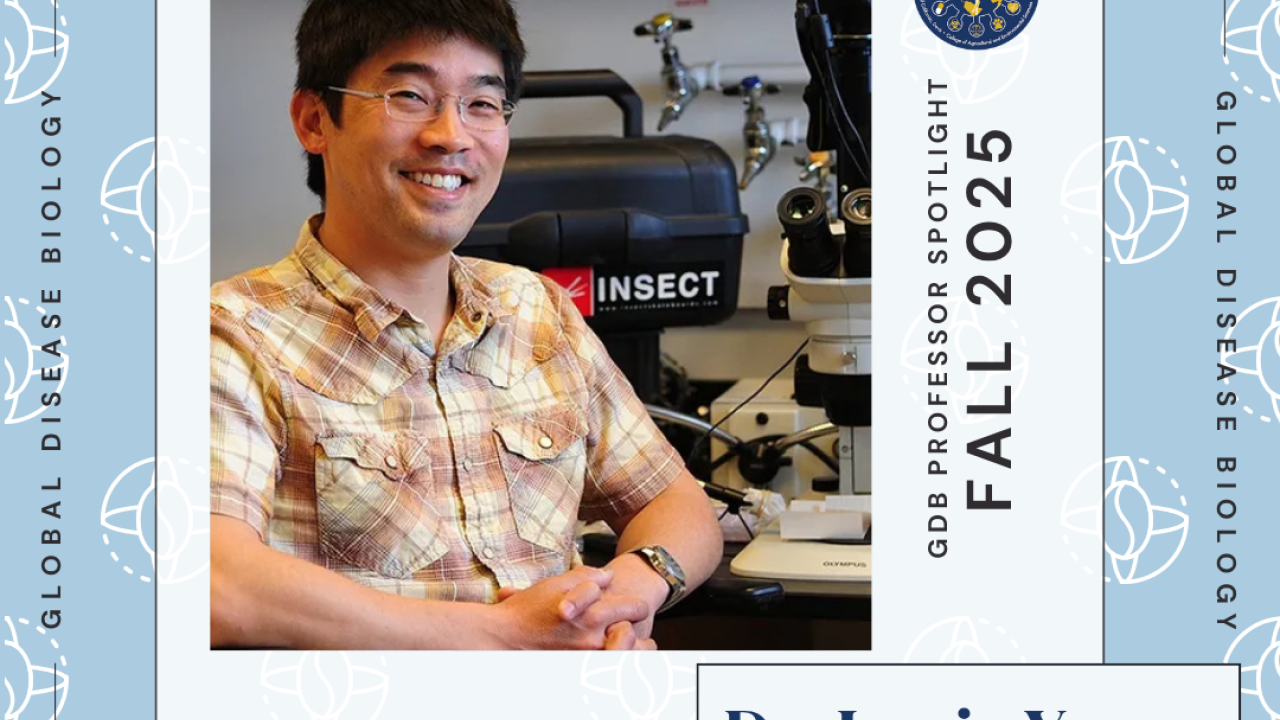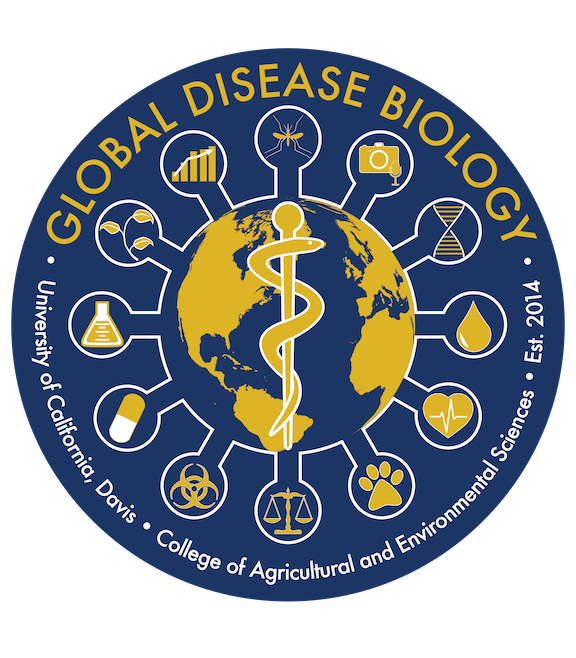
Professor Spotlight Fall 2025: Dr. Louie Yang
- How did you decide to study Entomology?
That’s a good question. I’m not sure there was ever a moment when I decided to become an entomologist. I’ve known that I liked animals and nature since I was a kid, but it took me a while to figure out that I wanted to study insects. When I was little, I thought maybe I wanted to be a pet shop owner. As I got little older, I thought maybe I wanted to be a veterinarian. I briefly considered making nature documentary films in college but then realized that I was mostly interested in the ideas and practice of ecology. I learned as much as I could about ecology and was able to get some experience studying birds and insects as an undergraduate. I am very thankful to my undergraduate research mentor, and the folks in his lab at the time, as they provided just the right mixture of guidance and independence to help me develop as a scientist in college. With lots of help and good advice, I was able to complete my honors thesis and my first published paper about the movement behavior of predaceous stink bugs.
After college, I spent a year as field assistant. I had the opportunity to work with swallows in upstate New York, to visit a field site studying parrotlets in Venezuela, to spend several months radio tracking treecreepers in Australia, and to spend some more months studying finches in South Africa. I also had a chance to travel in China and Mongolia as a tourist. Although I was spending a lot of that time studying birds, I was also paying attention to the insects around me and writing down broader ecological ideas and questions.
By the time I was ready for graduate school, I knew that I wanted to study insect ecology, and I was fortunate to find a place to do that at UC Davis. My advisors in grad school were supportive and inspiring, and gave me the freedom to explore a lot of ideas. I really loved my time in graduate school, but I remember the first two or three years of my PhD as a struggle to develop my own ideas and projects. During this time, I received a lot of good advice and I benefited immensely from the patience of those around me. I especially welcomed the encouragement to keep trying new projects, especially the scary ones that felt like they might be leading into uncharted territory. It took time, but I eventually found my footing. My dissertation was focused on the ecology of periodical cicadas, so I guess at some point along that wandering path I became an entomologist.
- How have your past experiences prepared you for working at UC Davis/ Did you have any other jobs?
There are probably a lot of ways I could answer this question, but what comes to mind is the unpredictable way people bring their own experiences to bear on the scientific process. For example, I am an incorrigible serial hobbyist. Over the years, this has probably made me a jack of several trades and an expert in none. However, it often seems like the things I’ve learned in my hobbies have found a way to influence the way I do science. When I needed a way to document the movement of stinkbugs in college, I used things I learned doing darkroom photography for fun. When I first started teaching ecology at UC Davis, I leaned on the lessons I had learned while teaching rock climbing. When I’m thinking about potential field sites for experimental studies these days, that list is longer for the aimless time I’ve spent fishing, hiking and kayaking. Whether it’s learning to use a sewing machine or spending time tinkering in a machine shop or fixing up old bikes, I think the things we learn doing things for fun gives us a toolkit for solving unexpected problems in the field, lab and classroom.
- What about teaching at UC Davis do you love?
There are a lot of things I enjoy about teaching at UC Davis. On the best days, you are interacting with students who are eager to learn, and you feel knowledgeable and organized. (On the other days, you try to find ways to improve.) In my insect ecology course, I like being able to experiment and revise course content in the margins around a relatively stable core structure. I like trying to develop broader themes in a course, so that ideas evolve and build throughout. In my field ecology class, I enjoy the wild ride of an improvised 20-week research experience with students. I like teaching outdoors and being surprised at what happens. In my graduate community ecology course, I enjoy being able to interact with the next generation of graduate students. I like trying to present the historical and conceptual context of questions in ecology.
- Besides being a professor, what are some outside hobbies that you enjoy right now?
That’s funny – if I had read ahead to question 4, I might have answered question 2 differently! These days, the hobbies I enjoy most are the ones I can do with my kids. That includes watching and talking soccer, playing video games, watching movies, and occasional opportunities to travel.
- What would students be surprised to find out about you?
My parents immigrated from Taiwan, I was born in Australia and grew up in West Virginia. Also, I enjoy driving simulated rally cars.
- What is the best piece of advice anyone has given you?
I think the best advice is “Be yourself.”
